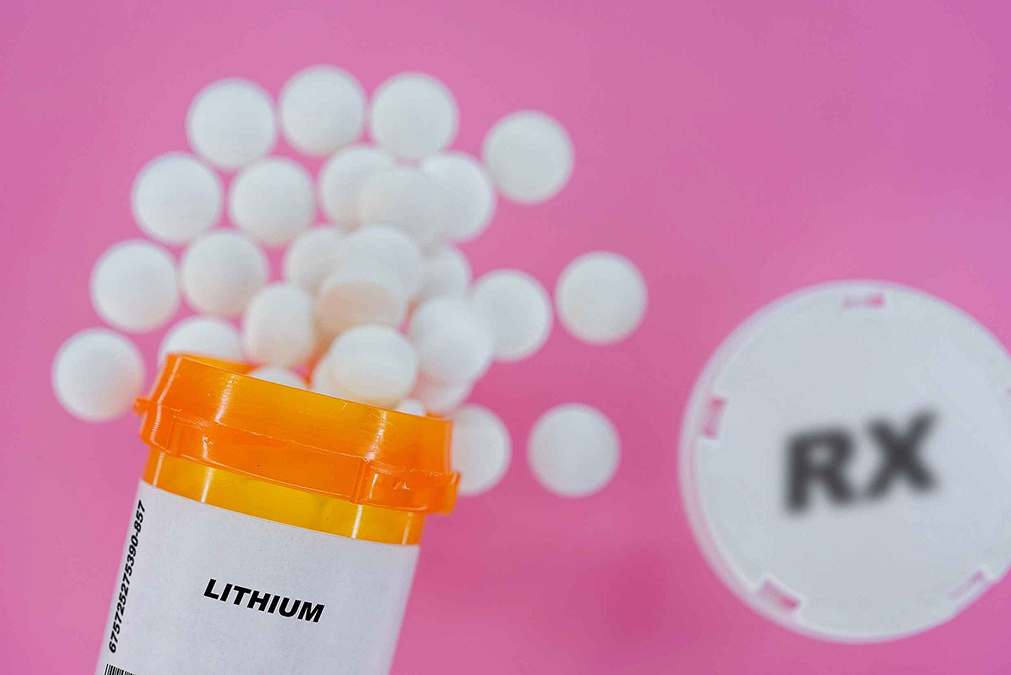 This drug is often given out like candy, prescribed as a life-long treatment option.
This drug is often given out like candy, prescribed as a life-long treatment option.
And because it’s effective, people often continue to take it without consulting their doctor about whether they should take a pause or change their dose.
And, according to a new study in the Bengal Journal of Psychiatry, this is a big problem.
Because this drug causes Chronic Kidney Disease (CKD).
Lithium is one of the few effective treatment options for bipolar disorder. It can reduce both manic and depressive episodes and lower suicide risk. This is why many doctors prescribe it for long periods.
No one really understands how lithium works, but it is thought to strengthen connections between nerve cells in areas of the brain involved in regulating mood and behavior.
But medical scientists have known for decades that it has some serious side effects, including the destruction of kidney and thyroid function, tremors, muscle weakness, poor concentration, and memory problems.
Researchers from Bankura Sammilani Medical College issued a warning regarding chronic kidney disease after conducting a review of the scientific literature.
The main problem is that lithium is prescribed for years at a time. This creates a real danger that it might become toxic to organs like our kidneys.
The concentration of lithium in our bodies depends partly on the amount we take and partly on the amount our kidneys manage to excrete.
As we age, our kidneys filter out smaller and smaller amounts of waste product. This is called the glomerular filtration rate. This is a relatively normal part of aging. However, in people who take lithium, this decrease in kidney function is particularly dangerous.
Lithium is one of the waste products that your kidneys need to remove from your body. If they remove less of it as you age, lithium toxicity can become an issue.
So, what are the consequences of lithium toxicity in your kidneys?
-
1. Lithium lowers the glomerular filtration rate even further, which, in turn, leads to even higher levels of lithium in our bodies.
2. When your kidneys start to retain sodium instead of excreting it, which happens when you are dehydrated, suffer a high fever, or consume too little salt, your kidneys start to reabsorb waste products from their own tubes. These waste products include lithium, which then accumulates in your kidneys.
3. Some very common drugs, such as blood pressure medications, caffeine, and nonsteroidal anti-inflammatories, cause your kidneys to secrete less lithium and thereby cause a buildup of lithium in your kidneys.
4. In addition to lowering the glomerular filtration rate, the accumulation of lithium in our kidneys can also destroy kidney cells, up to the point where the kidneys cannot function at all.
This is another reminder that we should think carefully before we stuff drugs down our throats.
I’m not saying you should not take lithium if your doctor prescribes it. But you should make sure you’re using the absolute lowest dose your doctor recommends. And follow up every few years to check if you need a dose change.

 Multiple Sclerosis
Multiple Sclerosis Banishing Bronchitis
Banishing Bronchitis Gum Disease Gone
Gum Disease Gone Overcoming Onychomycosis
Overcoming Onychomycosis Neuropathy No More
Neuropathy No More The Prostate Protocol
The Prostate Protocol Brain Booster
Brain Booster
 Ironbound
Ironbound
 Solution for Shingles
Solution for Shingles
 The Bone Density Solution
The Bone Density Solution
 The Ultimate Healing Protocol
The Ultimate Healing Protocol
 The Parkinson's Protocol
The Parkinson's Protocol
 The Chronic Kidney Disease Solution
The Chronic Kidney Disease Solution
 Overthrowing Anxiety
Overthrowing Anxiety The Fatty Liver Solution
The Fatty Liver Solution The Hypothyroidism Solution
The Hypothyroidism Solution
 The End of Gout
The End of Gout The Blood Pressure Program
The Blood Pressure Program
 The Oxigized Cholesterol Strategy
The Oxigized Cholesterol Strategy
 Stop Snoring And Sleep Apnea Program
Stop Snoring And Sleep Apnea Program
 The Arthritis Strategy
The Arthritis Strategy The Vertigo & Dizziness Program
The Vertigo & Dizziness Program The 3-Step Diabetes Strategy
The 3-Step Diabetes Strategy Hemorrhoids Healing Protocol
Hemorrhoids Healing Protocol The Erectile Dysfunction Master
The Erectile Dysfunction Master Weight Loss Breeze
Weight Loss Breeze The IBS Program
The IBS Program The Insomnia Program
The Insomnia Program The Migraine and Headache Program
The Migraine and Headache Program The Neck Pain Solution
The Neck Pain Solution The Menopause Solution
The Menopause Solution The Ejaculation Master
The Ejaculation Master The TMJ Solution
The TMJ Solution The Acid Reflux Solution
The Acid Reflux Solution The Fibromyalgia Solution
The Fibromyalgia Solution The Psoriasis Strategy
The Psoriasis Strategy